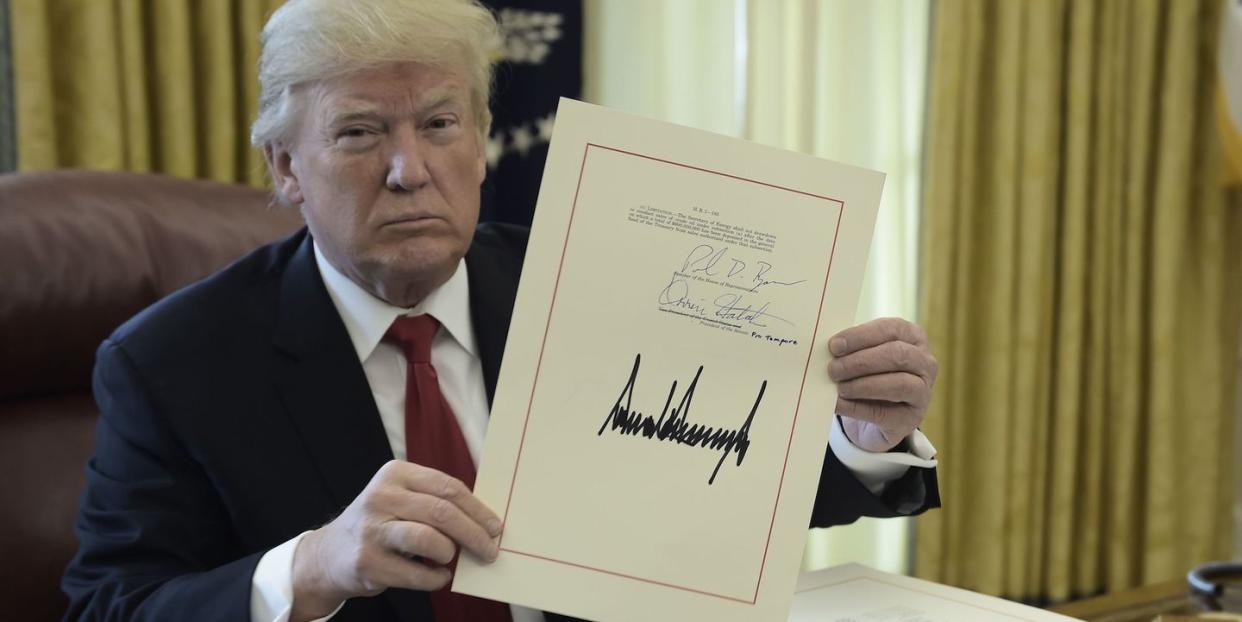Trump Was Holding a Bunch of Top Secret Intel That Other Governments Would Want

- Oops!Something went wrong.Please try again later.
We don't know all that much about the contents of the documents that Donald J. Trump, former president, was hoarding at Mar-a-Lago. (We also don't know what, if anything, he did with them. Maybe they were just shiny objects that made him feel important. Maybe he really did just pack up in a rush after his autogolpe failed, though that wouldn't explain his repeated refusals to return the stuff.) Some documents are likely personal effects of the former president. Some may be protected by attorney-client privilege. But we do know that some do not fit either of these categories. Some are unequivocally the property of the United States government—of all of us—and among those are some extremely sensitive documents. Dangerously so.
They aren't just top secret, according to the Washington Post, they "require special clearances on a need-to-know basis, not just top-secret clearance. Some special-access programs can have as few as a couple dozen government personnel authorized to know of an operation’s existence." The Post even reports that material on a foreign nation's nuclear capabilities was among the documents seized by the FBI, meaning that Trump was still holding onto it after his lawyer had signed a statement asserting that they'd handed over all the classified material after repeated attempts from the feds to get ahold of it.
With this in mind, two separate facts are worth placing alongside one another:
Trump was holding a bunch of top-secret information that would be hugely valuable to the governments of other countries.
The governments of other countries were paying Trump's businesses throughout his presidency.
In case the second point is somehow in doubt, we know lobbyists representing the Saudi government paid for 500 nights at Trump's Washington, D.C., hotel in the space of a month. The average rate was $768 per night, WaPo reports, and the groups in question switched their business from a Northern Virginia hotel to Trump's in December 2016, just after he won election. His Chicago hotel also saw a big uptick in Saudi visitors, and the manager of his outpost off New York's Central Park said "a single stay by some Saudi customers—who were traveling with Crown Prince Mohammed bin Salman—was so lucrative it helped the hotel turn a profit for the quarter."
(The Saudi business relationship with Trump continues through at least the LIV Golf enterprise, while his son-in-law has also had some incoming. Trump has also enjoyed business entanglements with a bunch of other sovereign nations.)
At Trump's hotel in Scotland, a trade association and a foreign government booked huge blocs of rooms but ended up using just a fraction of them, Politico reported in 2019, leaving the rest empty. This flagrancy was matched by non-government actors like executives at T-Mobile, who spent a bunch of money at Trump's Washington hotel right after they announced a merger with Sprint that would require approval from the Trump administration. CEO John Legere would even strut around the lobby in his trademark T-Mobile shirt.
All these folks have denied they were seeking to curry favor with Trump, of course. Just a coincidence!
It's worth keeping in mind, however, that the former president never seemed concerned about the appearance of conflicts of interest when he remained entangled with his businesses while wielding the power of the Executive Branch. In a sense, holding onto some of the government's top secrets could have been a way to hold onto some of that power. Or maybe this was all a coincidence, too, and/or the feds are making it all up and the guy whose eponymous "university," "foundation," and company are all shut down (or at risk thereof) for their very above-board practices is in this case completely innocent. Witch hunt!
You Might Also Like

